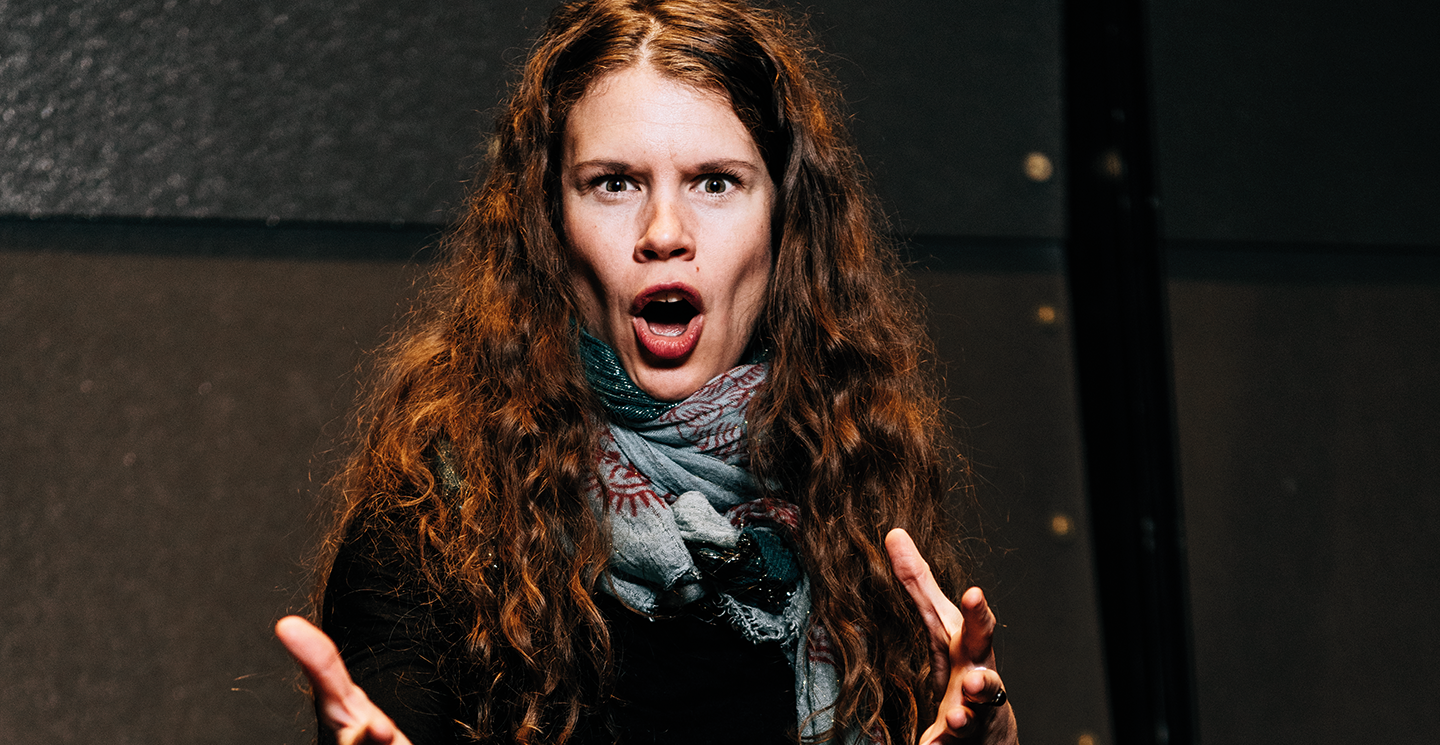
Performance, Classical Music – Early Music
In the master's program in classical music with a focus on early music, you get to immerse yourself in instrumental studies and music from mainly the Middle Ages to early romance.
With teaching at the highest international level in over 20 different instruments, the two-year master's programme offers a dynamic study environment with many other skilled students. You will have a common base in classical music but you will choose one of four approaches:
- classical music – chamber music/soloist
- classical music – orchestra
- classical music – early music
- classical music – Edsberg Mansion
In the Early Music profile instrument and repertoire studies are central. At KMH you can choose from the following instruments in Early Music:
- barockcello
- barockfagott
- barockgitarr
- barockluta
- barockoboe
- barockviola
- barockviolin
- blockflöjt
- cembalo
- renässansluta
- sång, samtliga rösttyper inklusive countertenor
- teorb
- traversflöjt
- viola da gamba
- violone
Admissions
To be eligible for this programme, you need to
- meet the general entry requirements for second-cycle courses and study programmes, meaning you must have completed an undergraduate study programme of at least 180 ECTS
- meet the specific entry requirements which are a Degree of Bachelor of Fine Arts in Music (180 credits) or equivalent, as well as passed entrance examination.
If the number of eligible applicants exceeds the number of places, a selection will take place. Selection is based on results on entrance examination. You as an applicant are placed in a selection group according to the instrument you apply for.
Read more about general entry requirements
Read the test description for the programme for information about the entrance examination content.
Application dates and deadlines
1 December 2023
Application opens at universityadmissions.se External link, opens in new window.. Please see our Step-by-step guide on how to apply.
External link, opens in new window.. Please see our Step-by-step guide on how to apply.
15 January 2024
Application deadline and last day to rank your programmes and courses.
16–18 January 2024
An email is sent to the email address you entered on universityadmissions.se with instructions on how to submit your test to KMH including the link for uploading Test 1. See the test description for information on what to submit.
25 January 2024
- Last day to upload Test 1 to KMH.
- Supporting documentation deadline. Last day to submit documentation to universityadmissions.se
 External link, opens in new window. and show that you meet the entry requirements.
External link, opens in new window. and show that you meet the entry requirements. - Deadline to document fee exempt status (EU/EEA) or pay the application fee (non EU/EEA). Fees, scholarships, residence permits (universityadmissions.se)
 External link, opens in new window.
External link, opens in new window.
14–20 February 2024
Results for Test 1 are sent via email. Passing applicants will receive information and invites to the next test.
9–17 March 2024
Entrance examinations during week 11.
12 April 2024
First notification of selection result. You must reply to keep your place/remain on the waiting list.
25 April 2024
Last day to reply to your offer and keep your place (applies to both admitted and applicants on waiting list). You do this on My pages on universityadmissions.se External link, opens in new window..
External link, opens in new window..
8 May 2024
Second notification of selection result.
26 August 2024
Introduction week and registration.
2 September 2024
Semester starts.
Programme Content
The main instrument courses cover the classical repertoire from the Middle Ages to the early Romantic period, centring round the relation to historical performing practice and performance using authentic instruments and instrumental/vocal techniques.
Artistic and technical proficiency is deepened and profiled in the course of main instrument tuition. Greater scope is provided for individual studies in source criticism and for secondary instruments closely akin to the main instrument (such as the viola d'amore, clavichord, hammerklavier and lutes of various kinds).
In the ensembles and chamber music courses, the interpretation coaching and interpretation of chamber music works in separate crews (duo and larger) which takes into account the specific repertoire of the individual instrument.
Performing practice studies cover general source material, aesthetic problems in the present-day performance of early music and parallels to other arts. Connections with current classical music theory are also enlarged on.
Rehearsal together with other instruments is expanded, and in the case of chamber music greater importance is now attached to developing each group's capacity for creative and efficient rehearsal without a designated leader.
Early and contemporary music have many aesthetic points of contact, not least the musician's problems of shaping an interpretation without having a tradition to fall back on. Modern repertoire can be chosen as an individual speciality. Joint projects are possible, e.g. together with the Composition programmes.
An endeavour is that as much as possible of the ensemble training results are reported in concert form.
The subsidiary support courses include seminars in historical performance practice, mental training and stage preparation as well as the freelance market. All in order for you to be well prepared for a professional life as a concerted musician.
The programme is finalised by an independent degree project with the emphasis in an artistic musical presentation that is to be reported and documented. This often involves a larger own concert or other artistic production together with a written report of the work process as a finish of your education.
After the Programme
The programme prepares you primarily for a professional life as chamber musician, orchestra musician and soloist at a high international level, but the work of a musician can change character several times during a professional life. Many former students switch between freelance assignments as a soloist, concerts in chamber music contexts and project positions in the world's various orchestras.
The programme also prepares for further studies at the artistic research level.

